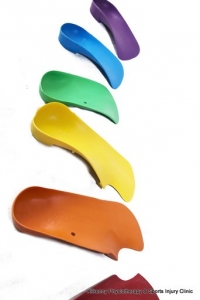What are Growing Pains?
Growing pains is the term often used to describe otherwise unexplained pains in children. These pains tend to present in the legs, most commonly in the back of the calves or shins, but occasionally in the back or front of the thigh or behind the knee.
They usually appear in the late afternoon, evening, just before or in bed, or after periods of intense activity. They may be so severe that the child wakens at night and frequently cries with the pain. The pains may also be present on a long walk. In this case, a young child may look to get into a buggy or be carried, while an older child will lag behind and dislike walking. The pains will usually be gone in the morning.
Children of any age can experience these pains which may be worse at certain times. They may also settle for months and then reappear.
In the absence of an actual injury such as a knock or fall, these pains are often thought to be due to the child going through a rapid growth spurt. As a result, the parents are frequently told that the child will grow out of them.
Who should you bring your child to?
If any of these symptoms are present the child should have further investigations with their GP;
- fever or high temperature
- loss of appetite or weight loss
- rash or red, warm, painful or swollen joints
- lethargy, tiredness, weakness
If these symptoms are not present, then the child should be brought to a chartered physiotherapist for thorough examination. We believe that these pains are an indication that the child is not performing optimally. They may also indicate that the biomechanics, or tracking is off.
Causes and Treatment of Growing Pains
Contrary to popular belief, there is actually no sound evidence to suggest that these “growing pains” are in any way linked to a growth spurt. In Kilkenny Physiotherapy & Sports Injury Clinic, we believe that such pains have a physical cause. While the child may grow out of the pain, they may not grow out of the cause. As a result, the symptoms, or other associated issues may return.
In our clinic, we will do a detailed biomechanical assessment of the child. This will include;
- An in depth history of their birth and early development
- A functional assessment of their movements
- Flexibility assessment
- Strength assessment
- Gait assessment
- Foot biomechanics assessment
From this, we will determine what biomechanical deviations within the child, what activities or lack of, or what events in their early development may have predisposed to this. We will link our findings in a logical strategic manner to determine what caused what, and then we will work back to provide a comprehensive home exercise programme to address the problems.
For example, if a child has flat feet, their calf muscle will have to overwork to align the foot in a functional position to walk and run. This overworking of the muscle may result in myofascial trigger points, and therefore cause pain in the muscle when the child goes to bed that night. There may also be a build up of chemicals in the muscles, the most commonly known of these is Lactic Acid.
Can you treat growing pains?
Many professions and therapists do not offer treatment for growing pains, and just reassure the parent that the child will grow out of them. In Kilkenny Physiotherapy & Sports Injury clinic, we take an active approach to the treatment of growing pains. We turn the child into an athlete showing them how to alleviate their pain. We teach the child how to do exercises to address their specific problem.
The treatments usually advocated for growing pains include;
- Massaging the legs
- Stretching the leg muscles
- Hot packs
- Over-the-counter pain medicine (not aspirin)
We will also look at all of the underlying biomechanical issues that need addressing.
Treatment for this often includes; 
- Massage, muscles relaxation modalities, other muscle release techniques
- Stretch or release tight muscles including foam rolling
- Strengthen weak muscles in calves, around hips and core muscles
- Foot muscle strengthening
- Core strengthening classes
- Correct alignment – Provide orthotics if required
- Re-educate gait and run to become more efficient
Growing pains may be associated with other children‘s complaints.


